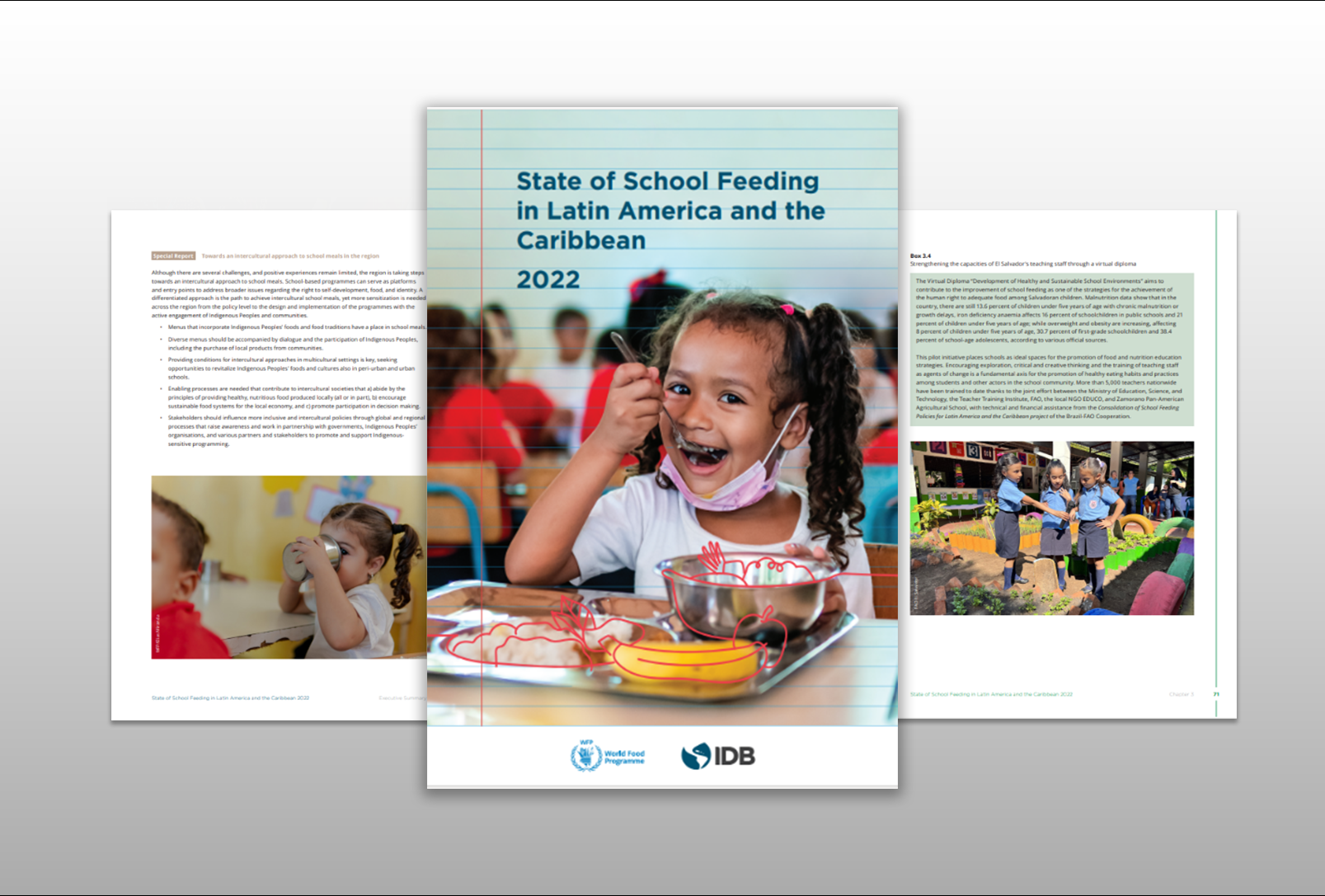 This joint publication by the Inter-American Development Bank (IDB) and the World Food Programme (WFP) presents the state of school feeding programmes in Latin America and the Caribbean (LAC) as of 2022. Amidst the challenges posed by the COVID-19 pandemic and compounding challenges, the publication highlights the critical role of school feeding programs for the region.
This joint publication by the Inter-American Development Bank (IDB) and the World Food Programme (WFP) presents the state of school feeding programmes in Latin America and the Caribbean (LAC) as of 2022. Amidst the challenges posed by the COVID-19 pandemic and compounding challenges, the publication highlights the critical role of school feeding programs for the region.
The publication offers comprehensive insights into the state of school feeding in LAC: scale, coverage, components, and impacts. It emphasizes the need to reach vulnerable children to prevent dropouts and promote holistic development. The publication emphasizes the importance of integrating health and nutrition interventions along with school meals programmes via multisectoral approaches.
Key findings indicate that 80.3 million children across the region received school meals in 2022. Political commitment and investment in these initiatives is high with at least 19 countries having either a specific school feeding or school nutrition policy or law. Coverage ranges from 30 to 100 percent across the countries in the region. The publication recommends strengthening coverage and programme quality as well as regulatory frameworks, implementing local food procurement, investing in intercultural approaches, and enhancing multisectoral collaboration and partnerships. Moreover, it underscores the significance of crisis preparedness for school feeding programmes, which were proven to be resilient – and indispensable – during the pandemic.
The publication offers specific recommendations to support countries to effectively tackle challenges and ensure that school feeding programmes continue to contribute to children’s development, education, and overall wellbeing.




